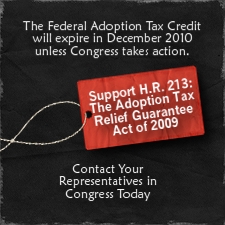An excerpt from the NY Times, "Relative Choices: I Am Not a Bridge" written by Sumeia Williams.
"I’m not an expert by any means, but I do rely on my own experiences. I think exposing adoptees to their birth culture is a given. It can offer them a sense of continuation rather than that of having been conjured out of thin air. Just as importantly, having access to and being made to feel a part of communities with similar ethnicities can go a long way. This would require parents to live in or close by and actively engage members of those communities. In my opinion, it does little good for transethnically-adopted children to spend rationed amounts of time in culture camps or among peers with similar ethnicities. To some adoptees, it can feel like being given a warm blanket only to have it yanked away again as they return to their isolated environments.
Because of my own experience, I think transethnically-adopted children may have more success connecting with their communities here in the United States. I connect more successfully with second- and even third-generation Vietnamese Americans rather than those from my own. Vietnam is the country of my birth, but like many of those second- and- third generation Vietnamese Americans, my identity is deeply embedded in American soil. I find commonalities with them in everything from questions of identity to a love of both American and Asian pop culture.
Discussions on race and racism can help children to recognize when they are being discriminated against in order to not fall victims to it. This would require parents to learn to see through the eyes of a person of color — what may become the eyes of their children. The adoptive parents I most admire are those who educate themselves on the subject of racism and become actively involved in its prevention. If my parents had done this, it would have shown that they not only cared about me, but the community of which I’d come to feel a part of — if I’d felt a part of it. Becoming actively involved can also illustrate positive ways with which to deal with racial discrimination and prejudice.
Perhaps the role of the adoptive parent could be viewed, not so much as a bridge, but as a builder of bridges, connecting their children to themselves and their ethnicities. As parents, the ability to find and develop the tools is in their hands, not in the hands of their children. Of course, there is no one solution or guarantee that it would achieve the desired outcome. I don’t think it should be a matter of end result, but of preparing a child to deal with the challenges they face as they come into their own."
Subscribe to:
Post Comments (Atom)









No comments:
Post a Comment